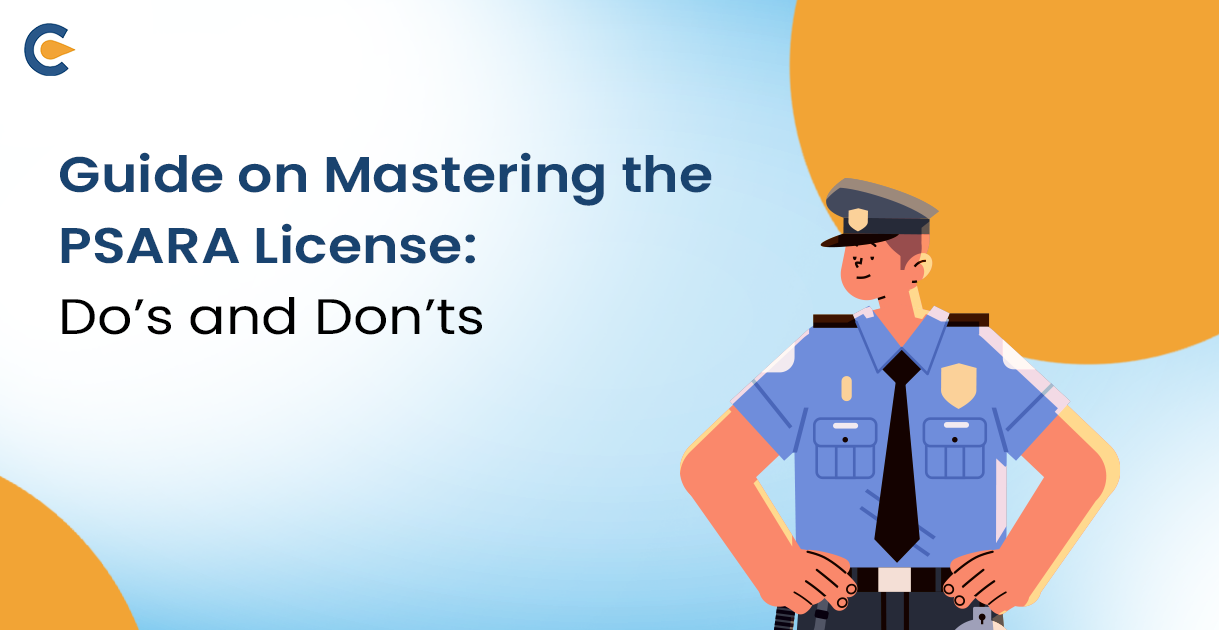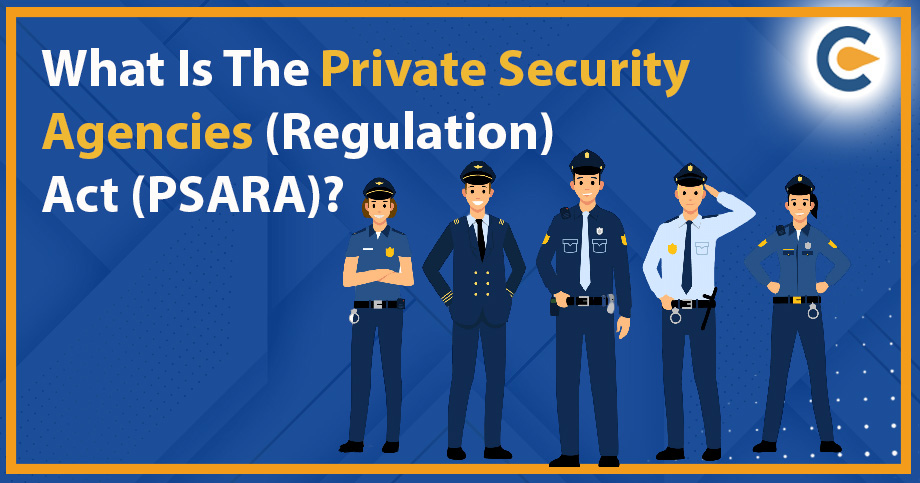A PSARA License is issued under the Private Security Agency Regulation Act of 2005. It is an important piece of legislation that controls how private security firms operate in India. Any organization looking to offer private security services to clients including companies, municipalities, and individuals must have the license as a basic prerequisite. The PSARA license covers an extensive array of security services, including risk assessment, surveillance, and manned guarding. The government hopes to assure public safety and asset protection by putting private security companies under the regulatory jurisdiction of the PSARA License. This would ensure that the security services these companies provide satisfy standardized quality norms.
Why is the PSARA License significant?
To conduct business lawfully and morally in India, private security firms must get a PSARA license. Agencies can create the conditions for a successful licensing procedure by adhering to the do’s and don’ts and making sure that the PSARA Act is fully followed. In addition to offering legal recognition, the PSARA license helps private security firms become more reputable in the marketplace and gain the confidence of their clients. Security agencies help create a more secure and safe environment by adhering to the requirements established by the legislation.
Who can apply for a PSARA License?
Anybody who wants to apply for a PSARA license must meet the requirements listed in the statute approved in 2005:
- A private limited company that complies with the Companies Act of 2013.
- Limited Liability Partnership Company.
- A one person company
- Sole proprietorship.
- Partnerships.
The Do’s of PSARA License
In mastering the PSARA license, there are some do’s and don’ts of PSARA license, following are some of the Do’s of PSARA license:
1. Compliance with Regulatory Requirements:
For mastering the PSARA license, ensure that you comprehend all of the legal criteria listed in the PSARA. Respect all prescribed guidelines and directives pertaining to application procedures, prerequisites, and other legal duties. This entails going over the PSARA material in detail and keeping up with any updates or changes.
2. Maintaining all Paperwork and Record-Keeping
The next vital point for mastering the PSARA license is paperwork. As required by PSARA, keep accurate records and documentation. This entails maintaining correct records of all pertinent paperwork, including personnel certificates, training manuals, and license documents. In addition to proving compliance, current, well-organized records are an invaluable tool for audits and inspections.
3. Training and Certification of Employees:
Give security personnel certification and training a priority for mastering the PSARA license. It is vital to see that every employee completes the PSARA-mandated training courses. This not only shows a dedication to adhering to regulatory requirements but also improves the workforce’s professionalism and skill set. It is also advised to update certificates often to meet changing industry standards for mastering the PSARA license.
4. Effective operational practices:
Adopt and maintain efficient operating procedures and security measures. This entails creating and keeping up with reliable emergency response plans, communication methods, and security measures. Following best practices helps to maintain a good compliance record under PSARA in addition to ensuring the premises’ safety and security, and mastering the PSARA license becomes easy.
5. Ensure Eligibility:
Make sure the qualifying requirements are verified by your private security company. Make sure that your organization has the essential resources, sound financial standing, and essential personnel background checks that the statute mandates.
6. Engage Professional Assistance:
The PSARA license application procedure may be greatly streamlined by seeking expert advice and help. Hire seasoned experts who can guide you through the difficulties and comprehend the subtleties of the licensing process.
The Don’ts of PSARA License
In mastering the PSARA license, there are some do’s and don’ts of PSARA license, following are some of the don’ts of PSARA license:
1. Don’t Operate Without a Valid License:
To master the PSARA license and before offering any security services, ensure your private security company has a current PSARA license. It is against the law to operate without a license, and there are serious consequences.
2. Don’t Ignore Renewal Procedures:
Since PSARA licenses often have a set expiration date, renewal is crucial. If you don’t renew on time, your license may be suspended, which will have an impact on your business. This is a negative point in mastering the PSARA license.
3. Don’t Conceal Information:
When submitting an application for a PSARA license, always include correct and true information which will aid in mastering the PSARA license. If you provide inaccurate information or make misrepresentations, your application may be rejected, and you may face legal repercussions.
4. Don’t Ignore Training Requirements:
In accordance with PSARA regulations, private security employees are required to complete training. Ignoring your staff’s training obligations may result in non-compliance and legal problems and derail the mastering the PSARA license.
5. Don’t Ignore Background Checks:
Before employing any security professionals, thoroughly investigate their backgrounds. Hiring people with questionable histories or criminal records might damage your reputation, and mastering a PSARA license can be difficult.
PSARA License with Corpbiz
Corpbiz has the expertise to handle every service needed to secure an Indian PSARA license. Our professionals offer comprehensive services and are always available to assist you.
Frequently Asked Questions
What role does a PSARA license play?
For private security firms to operate in India, they must have a PSARA license. Section 4 of the Private Security Agency (Regulation) Act, 2005 mentions the mandate.
How long is the PSARA license valid?
In most states, the PSARA License is valid for five years. Nevertheless, it is only valid for a year in certain places, like Uttarakhand and Chhattisgarh. Ninety days before the license's expiration, the renewal application may be submitted.
What consequences result from operating a business without a PSARA license?
If a private security company runs without a PSARA license, the owner faces a one year sentence. Additionally, a fine of up to Rs. 25,000 may be assessed.
Is a PSARA license required?
In India, establishing or operating a private security service requires holding a PSARA license. The Private Security Agencies Regulation Act of 2005 makes reference to the need.
What requirements exist for a PSARA license?
In India, persons or organizations need to meet certain requirements stated in the Private Security Agencies Regulation Act in order to be qualified for a PSARA license. This usually entails having Indian citizenship, a spotless criminal history, pertinent security services expertise, and a steady income.
Who can apply for a PSARA license?
Any individual, partnership, corporation, or company that plans to engage in the private security services industry is eligible to apply for a PSARA license.
What is the deadline for applying for a license renewal?
Application for license renewals must be submitted to the Controlling Authority at least 45 days prior to the license's expiration date.
What are the fundamental requirements for licensing?
The Controlling Authority issues licenses after confirming the applicants' backgrounds and/or after conducting any further investigations it deems appropriate.
Are there different categories or types of PSARA Licenses?
Every state has different PSARA License categories or kinds.
Which body grants PSARA licenses?
Section 3 of PSARA states that a governing authority, not less than the level of joint secretary, should be appointed by notice by each state. The PSARA License must be issued by the governing body of the relevant state.
Read Our Article: Suggestions To Avoid Cancellation Of PSARA License In India











